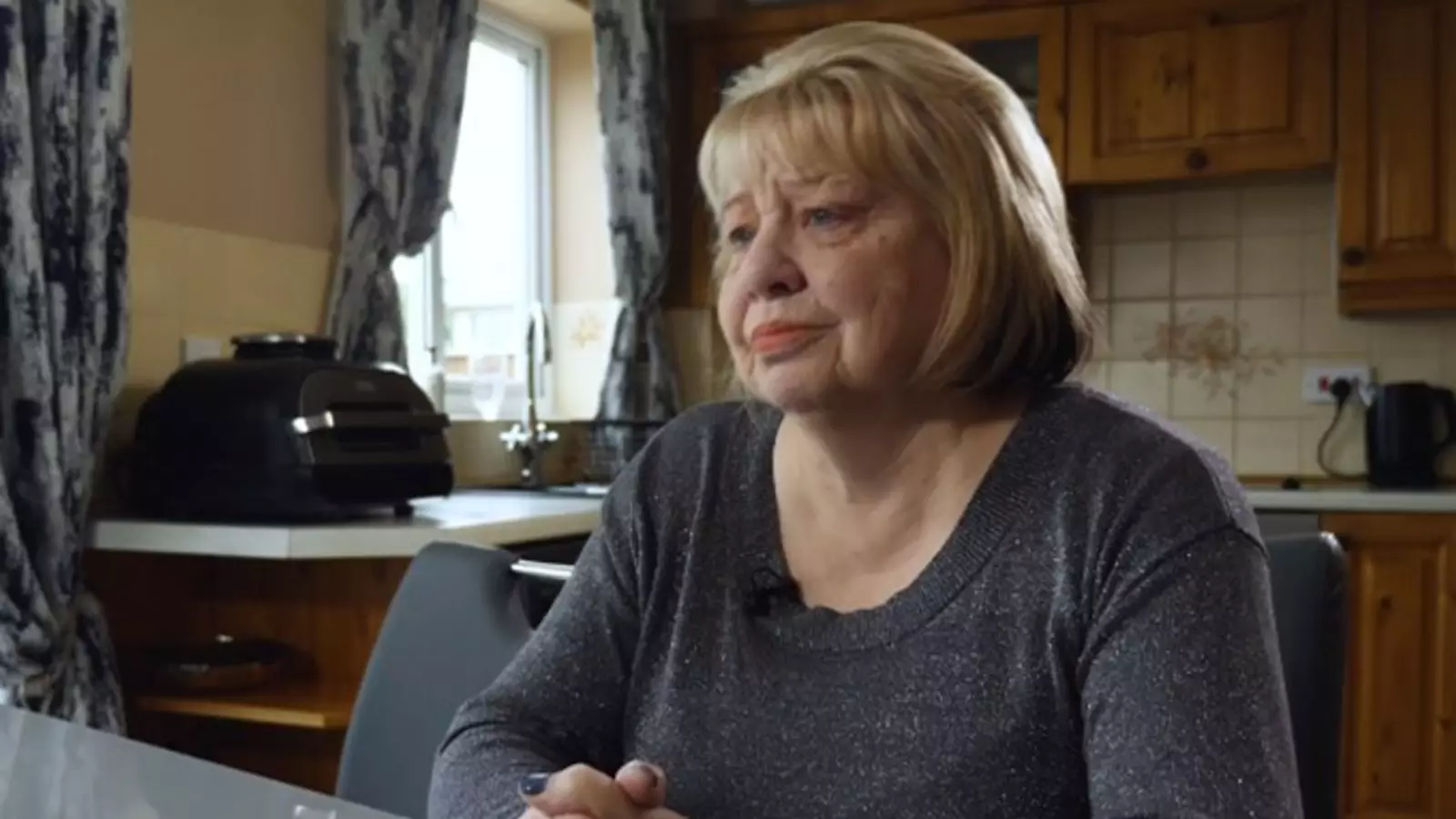Diane Edwards stands as a poignant testament to the harsh realities faced by families grappling with terminal illness. Just a short time after the death of her ex-husband, Mick, she reflects on the devastating experience of supporting him through stage 4 bowel cancer. It’s not merely the loss of a partner; it’s a depth of mourning punctuated by frustration and anger toward a healthcare system that often fails those it should serve.
Diane intimately shares the grueling aspects of caring for Mick during his illness. “Sometimes I’d put him back into bed and the blood would be pouring out,” she recounts. This vivid imagery underscores the horrific transformations brought on by illness—insanity battling the affection once felt. The Mick she married had vanished, replaced by someone reduced by disease and despair. It’s a toll not only on the patient but also on the caregiver, who often becomes overwhelmed while navigating the complexities of care, deterioration, and emotional strain.
Mick’s blindness added another layer of difficulty as Diane’s caregiving responsibilities increased exponentially. She reveals that, although nurses and caregivers did come by, they often lacked the medical expertise needed to offer the kind of support that was crucial for Mick’s condition. “They weren’t medical carers,” she states emphatically, painting a picture of an inadequately supported family unit crumbling under the weight of both acute medical needs and the emotional burden accompanying terminal illness.
Compounding their struggle was the system designed to aid patients in need. After Mick’s hospital stay, Diane faced the frustration of navigating NHS Continuing Healthcare (CHC), a program that is supposed to address the comprehensive health and social care needs of patients. However, shortly after entering this system, they found themselves entangled in a web of bureaucracy.
Twelve weeks post-discharge, Mick underwent an online assessment that concluded he required social care rather than palliative care. The use of technology, particularly in the context of sensitive health evaluations, was a misstep that Diane believed left her ex-husband at a disadvantage. “Mick couldn’t cope with a video link,” she explains, illuminating how the shift to remote assessments can overlook an individual’s true circumstance. It was a painful moment when Diane had to convey the news that Mick’s funding had been cut, leaving them grappling with the financial implications of his care.
The processes surrounding CHC assessment reveal substantial inconsistencies, leading to a sense of insecurity among families like Diane’s. Research by the Nuffield Trust exhibits a disheartening picture—of patients who underwent assessments, only a fraction were eligible for CHC, with disparities observed across different regions. The comment made by Rachel Hutchings highlights a troubling reality: the system is not uniform, and as a result, its beneficiaries can experience vastly different levels of support based merely on their geographical location.
Moreover, she points out that the ongoing pressures within social care have led to urgent calls for reform, which remain largely unaddressed. The complexities and suffering faced by families battling terminal illness are compounded by a system that seems to lack the agility and understanding necessary to handle urgent medical needs effectively.
As Diane looks back on the journey she and Mick faced, she wishes for a better safety net for families navigating the intricacies of terminal care. Her frustration is palpable; the lack of comprehensive support systems only exacerbates the acute pain already present. She muses that had assisted dying been an option, Mick would have likely chosen that route—a heartbreaking reflection on the state of end-of-life care.
Ultimately, Diane’s experience serves as a clarion call for systemic improvement in healthcare, particularly for those like her ex-husband who confront their mortality. It begs for a reevaluation of how care is delivered, assessed, and, ultimately, humanity’s role in supporting individuals during their most vulnerable times.
The emotional and physical toll taken on caregivers and patients alike must not be overlooked. It is imperative that society acknowledges these challenges and works towards creating a healthcare landscape where compassion and comprehensive support are interwoven into the fabric of care. Diane’s story is not singular; it is emblematic of a struggle that continues to leave indelible marks on many families across the nation.


Leave a Reply